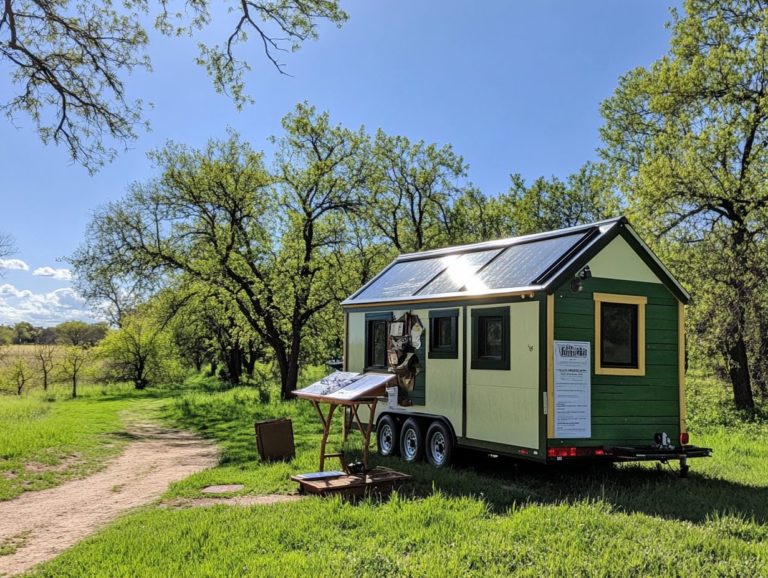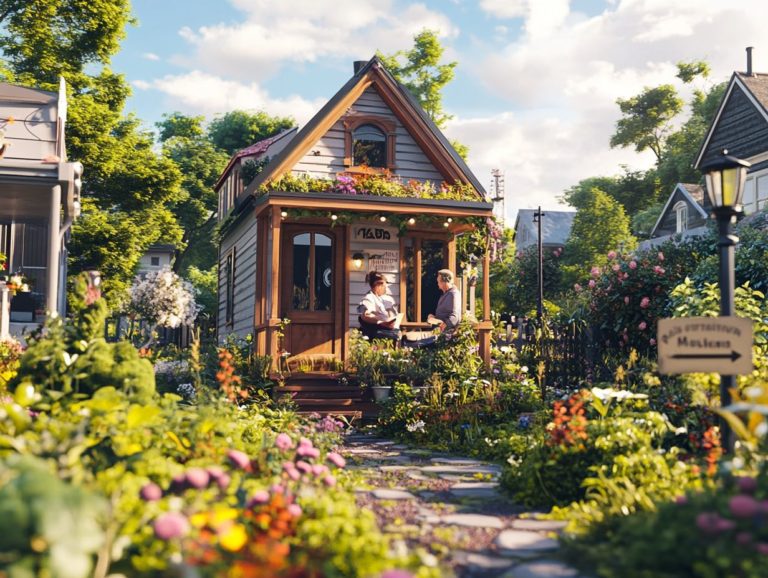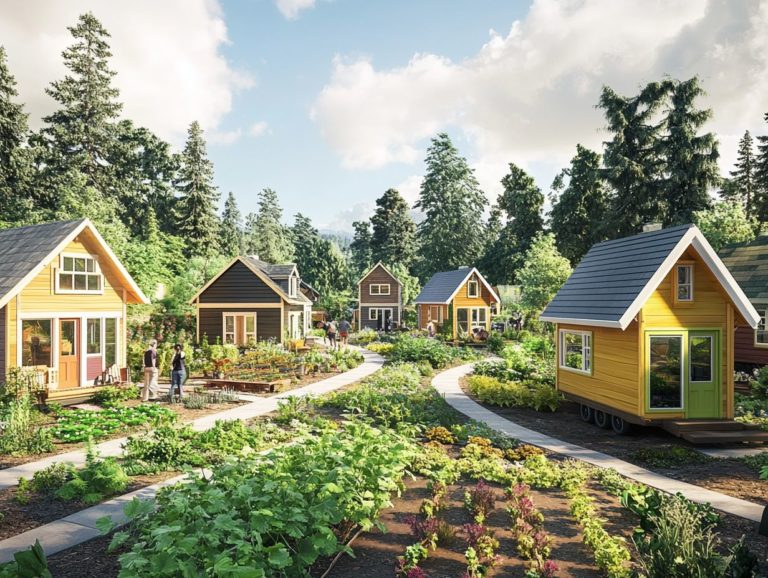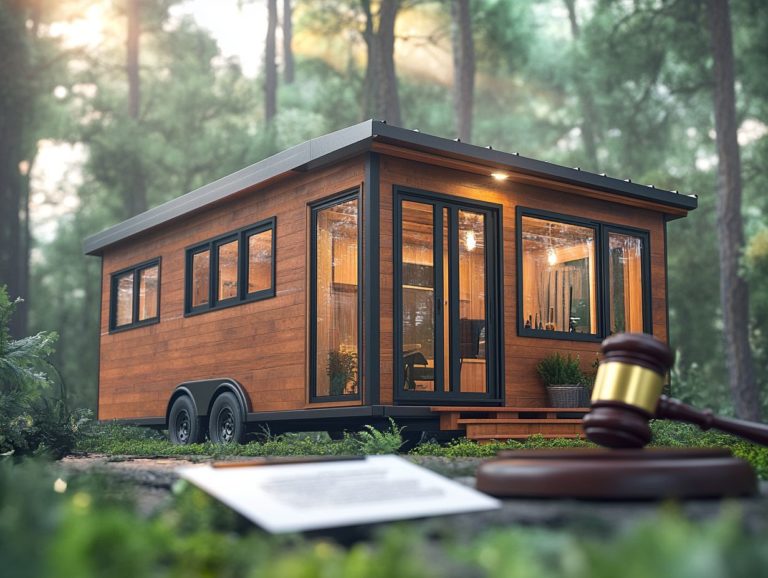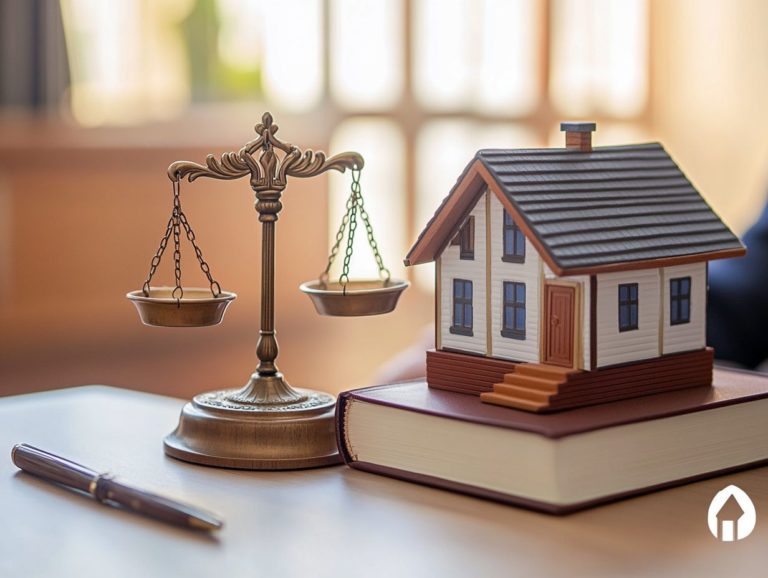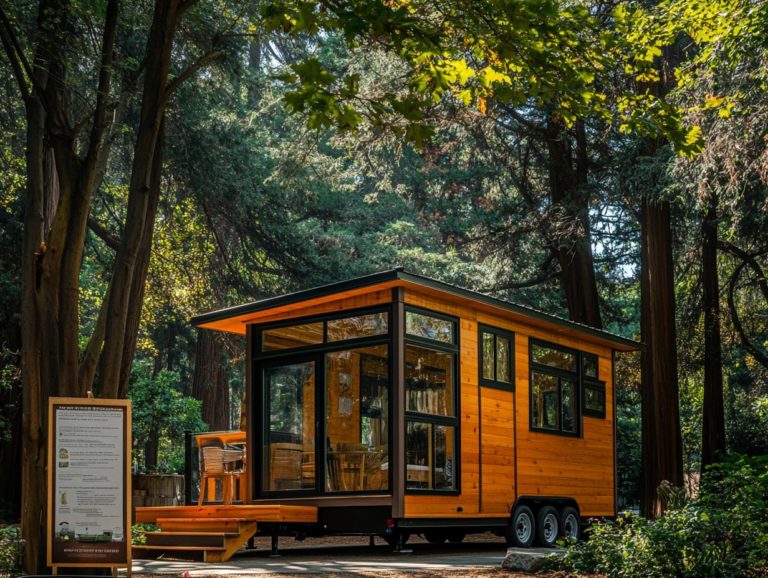Tiny House Ownership: Legal Rights Explained
Ready to explore the exciting world of tiny homes? This guide reveals how they differ from traditional houses and what legal steps you need to take to own one.
Tiny house ownership transcends the mere act of adopting a minimalist lifestyle; it invites you to navigate a distinctive legal landscape.
This guide delves into what distinguishes tiny houses from traditional homes and highlights the essential legal considerations associated with owning one. You ll explore the intricacies of zoning laws, building codes, and the alluring complexities of insurance and tax implications that come into play.
This guide also explores the rights and protections of tiny house residents. It offers ways to advocate for these rights.
Whether you re contemplating a downsizing adventure or simply seeking knowledge, this guide provides valuable insights into the captivating world of tiny homes.
Contents [hide]
- Key Takeaways:
- Understanding Tiny House Ownership
- Legal Considerations for Tiny House Ownership
- Rights and Protections for Tiny House Owners
- Legal Rights and Protections for Tiny House Dwellers
- Supporting Tiny House Ownership Rights
- Frequently Asked Questions
- What are the legal rights of a tiny house owner?
- Do I need a building permit for a tiny house?
- Can I own land and have a tiny house on it?
- What are the benefits of owning a tiny house?
- What are the potential challenges of owning a tiny house?
- Are there any legal restrictions on where I can park my tiny house?
Key Takeaways:
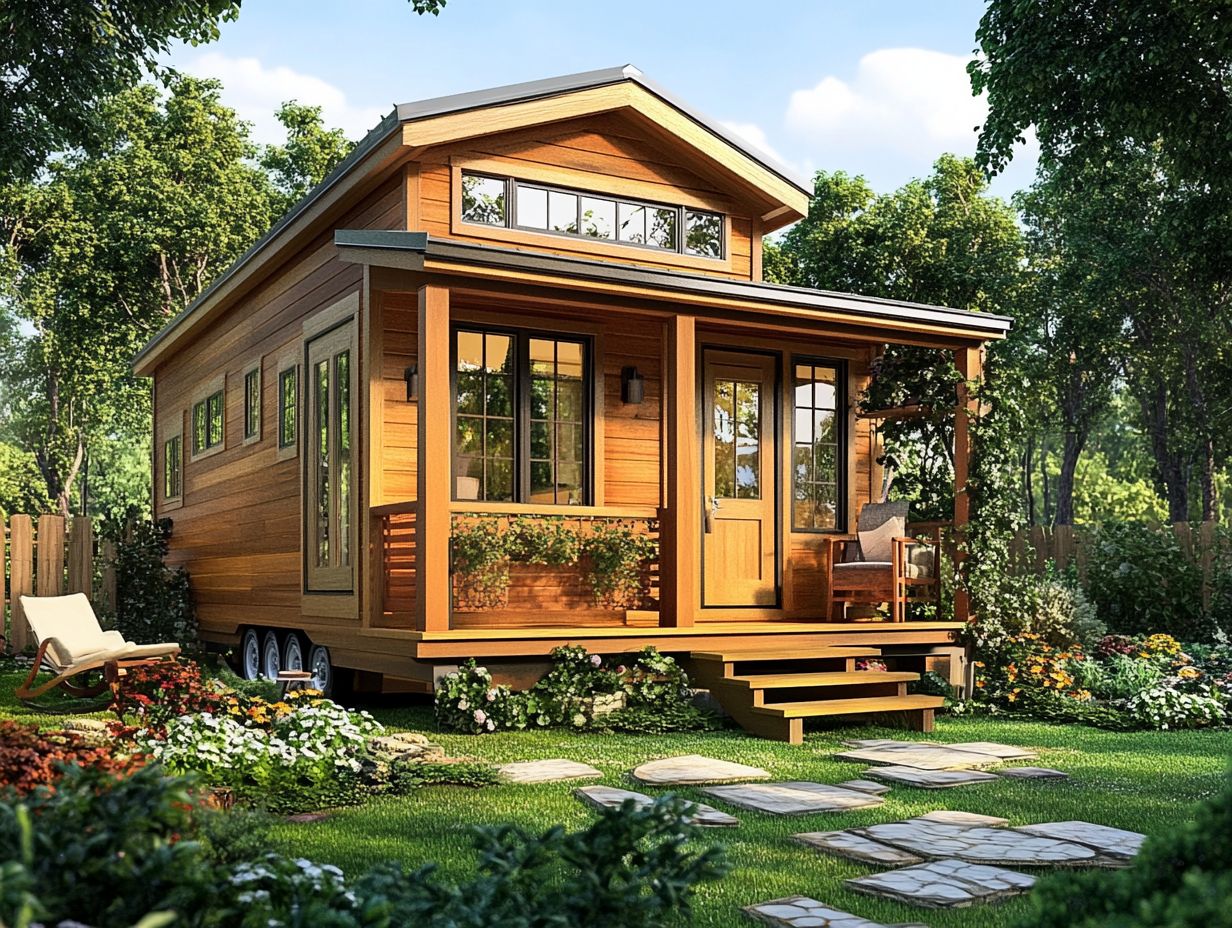
- Tiny houses are a popular alternative to traditional homes, but they come with their own set of legal considerations that owners must be aware of.
- Zoning and building codes, land ownership and leasing, as well as insurance and taxes are important factors to consider when owning a tiny house.
- Tiny house owners have legal rights and protections, but it is important to advocate for these rights and lobby for more recognition and support for tiny house ownership.
Understanding Tiny House Ownership
Tiny house ownership involves navigating a complex landscape. Legal, financial, and personal considerations are crucial, especially in places like California and New York.
The tiny house movement has gained momentum as a potential solution to the affordable housing crisis, championing the ideals of community and financial freedom for many homeowners.
As tiny homes become increasingly popular, it’s crucial for you to grasp the nuances that set them apart from traditional residences, particularly regarding local regulations and property taxes.
What is a Tiny House and How is it Different from a Traditional Home?
A tiny house is characterized by its compact design, typically boasting a minimum square footage that allows you to maximize space without sacrificing comfort. This fundamentally contrasts with traditional homes, which often feature larger living areas and multiple rooms.
These small homes on the same property as a larger house usually adhere to the International Residential Code, which governs building standards and safety regulations.
The appeal of tiny homes lies not just in their efficient use of space but also in their ability to promote a sustainable lifestyle. By incorporating eco-friendly materials and innovative design techniques, these compact dwellings significantly minimize energy consumption and environmental impact, making them a more planet-friendly choice.
You ll find that reduced maintenance costs and lower utility bills lead to considerable financial savings over time. This allows you to invest in experiences rather than excess square footage.
This shift toward simplicity and resourcefulness is also mirrored in urban planning trends, as many municipalities adapt their housing codes to embrace these smaller, more sustainable living solutions.
Legal Considerations for Tiny House Ownership
Navigating the legal considerations for tiny house ownership demands a clear understanding of several factors, including zoning laws, building codes, and land use regulations. These elements can vary widely by region and significantly influence your ability to establish a tiny home, whether in vibrant Nashville or sunny Fresno.
The intricacies of obtaining building permits and complying with local regulations only add to the complexity, especially given the ever-evolving legal landscape surrounding tiny house rentals. To steer clear of potential legal headaches, it’s crucial for aspiring homeowners like you to seek out understanding tiny house land use laws, legal technology solutions, and expert advice.
Zoning and Building Codes
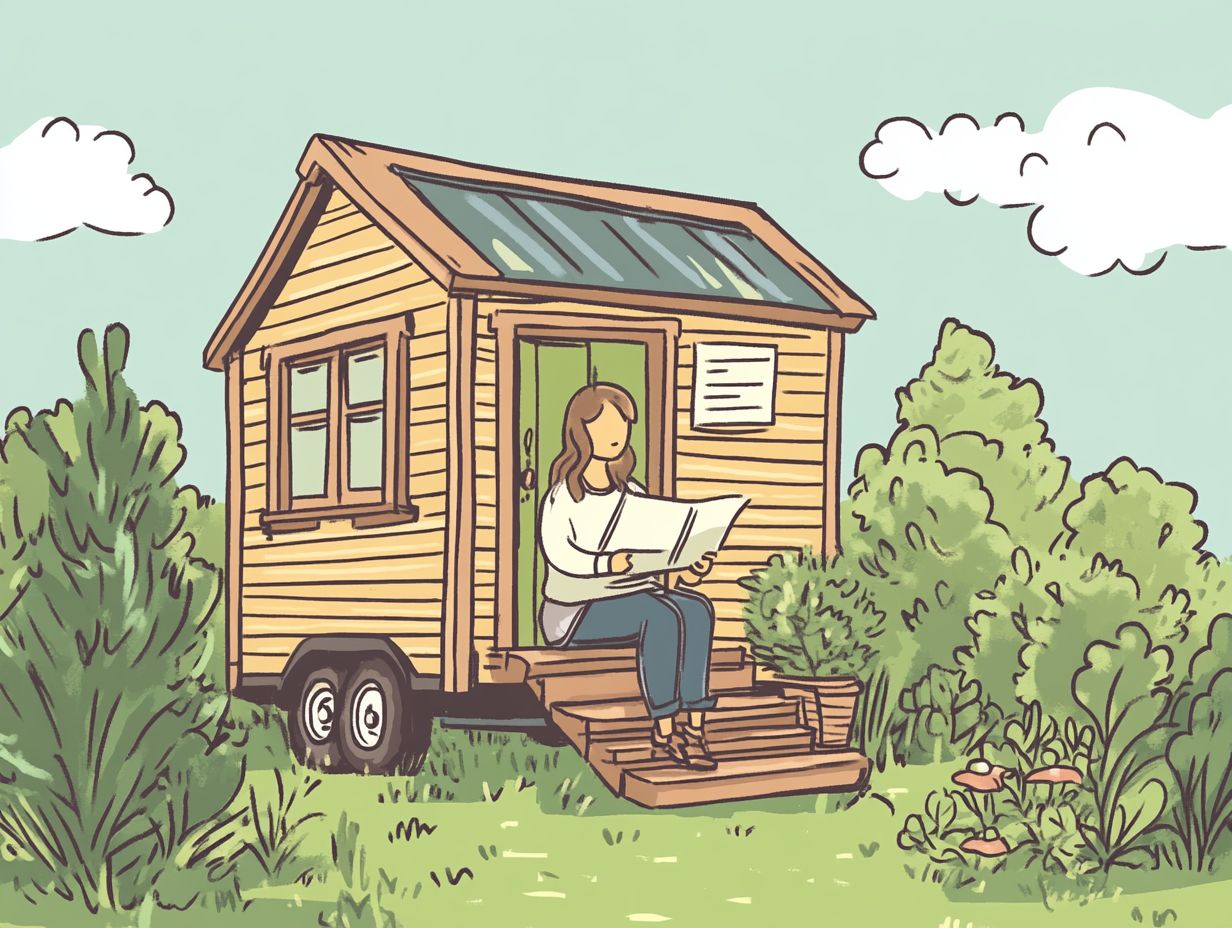
Zoning and building codes play a crucial role in determining where and how you can construct a tiny home. You’ll often navigate a maze of complex regulations that dictate everything from minimum square footage to classifying tiny homes as accessory structures additional buildings that support the main home within a tiny home community.
Understanding the building regulations that apply to homes is essential for your compliance, especially considering the unique challenges that local zoning ordinances may present.
These codes can vary dramatically from one state to another, significantly impacting the feasibility of tiny house living. Take Oregon, for example; the state has embraced tiny homes, allowing them as primary residences in specific zones, which promotes sustainable housing options.
In contrast, California presents challenges with stringent height restrictions and setback requirements that can complicate both the design and placement of tiny homes, particularly in urban settings.
Some municipalities are starting to adopt special tiny house ordinances. These regulations foster community standards that encourage innovative living solutions while ensuring that such developments align with neighborhood aesthetics and safety regulations.
Land Ownership and Leasing
Land ownership and leasing are pivotal aspects of tiny house ownership, shaping everything from property taxes to potential rental income. It s crucial to grasp the intricacies of land use agreements and how they affect your ability to place a tiny home on a leased or owned lot.
For many, deciding between leasing and owning land is a significant financial decision that impacts long-term investment strategies. Leasing offers a pathway to affordability and flexibility, allowing you to avoid hefty upfront costs, but it often carries restrictions on modifications and the possibility of rising rental fees.
On the other hand, owning land brings a sense of permanence and control. However, it requires a solid understanding of property tax implications and the responsibilities that come with land maintenance.
Evaluating your lifestyle goals, financial situation, and local regulations is essential to making informed choices that align with your vision of tiny living.
Insurance and Tax Implications
Insurance and tax implications are critical considerations for tiny house owners. Understanding property taxes and finding coverage options specifically designed for non-traditional residences is essential for anyone contemplating tiny house rentals or permanent living arrangements.
As minimalist living gains popularity, you may seek clarity on the insurance types available for tiny homes. This could include specialized homeowners insurance or renters insurance tailored to your unique living situation.
Knowing how ownership types—mobile, stationary, or built on a permanent foundation—affect your tax responsibilities is crucial; don’t overlook this! Each state’s regulations can add another layer of complexity, particularly regarding property taxes, which often depend on local zoning laws and the legal status of tiny houses in your area.
Navigating these nuances can save you from costly mistakes, allowing you to fully enjoy your tiny house lifestyle without the weight of unexpected financial burdens.
Rights and Protections for Tiny House Owners
As the tiny house movement continues to gain traction, the rights and protections for tiny house owners are becoming increasingly critical. It s essential to understand the legal rights at your disposal and explore advocacy strategies that empower you and safeguard your interests.
Engaging in community mediation and seeking legal counsel can be invaluable tools for resolving disputes and ensuring fair treatment in the competitive tiny home marketplace.
Learn more about local regulations today to ensure your tiny home project is a success!
Legal Rights and Protections for Tiny House Dwellers
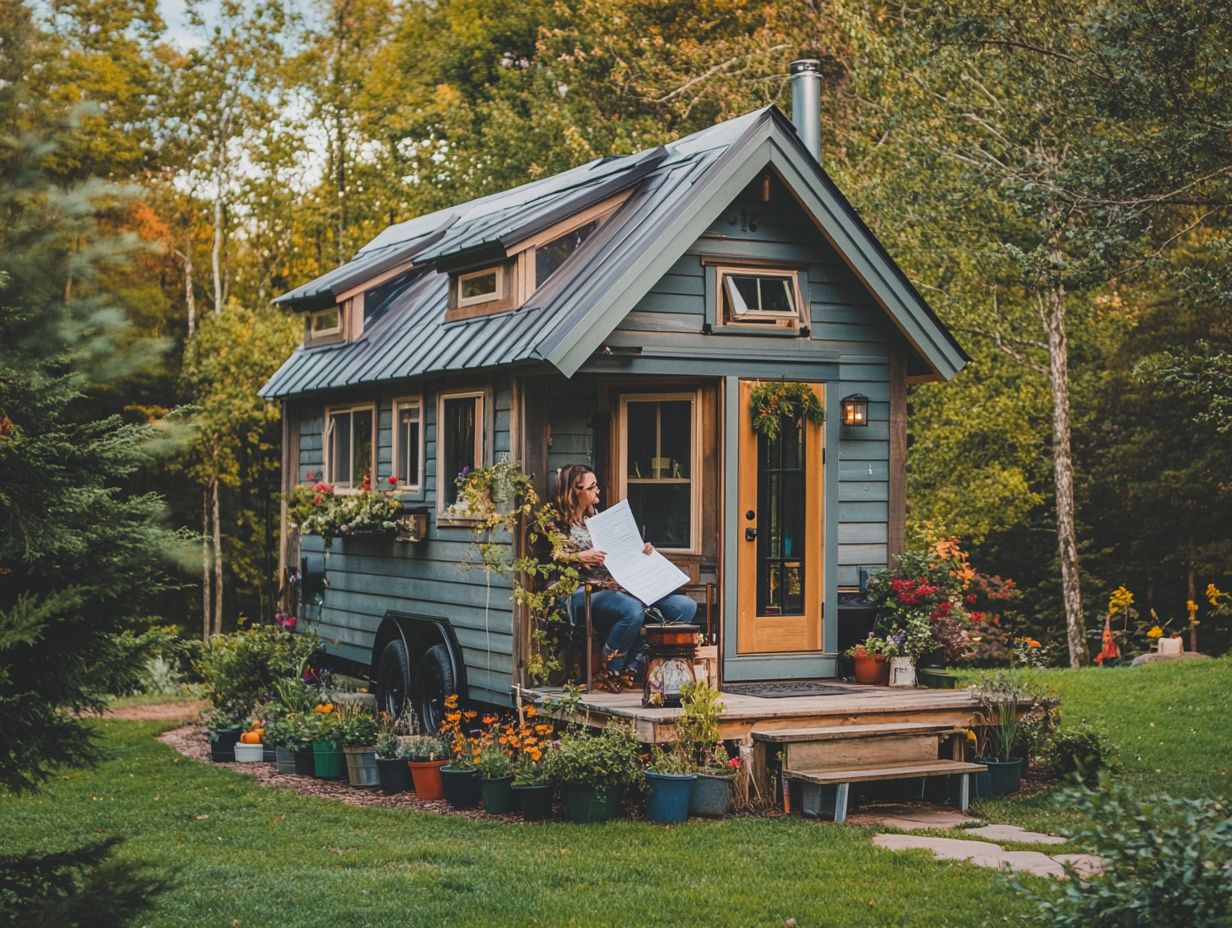
Tiny house dwellers have important legal rights and protections that help maintain their unique lifestyle. You can live in tiny homes that follow local zoning regulations and have the option to participate in community mediation if disputes arise.
Knowing these rights is vital for ensuring a secure and supportive environment for tiny house living. These rights let you challenge restrictive ordinances that might impact your living situation, often requiring skilled legal advice.
Many advocates are dedicated to ensuring that tiny house residents receive recognition in housing policies. Their hard work has led to successful mediation cases, resulting in favorable zoning adjustments.
In several communities, collective efforts have introduced tiny house-friendly laws, making it easier for residents to manage common challenges like parking permits and property taxes. Understanding tiny house residency laws you should know emphasizes the importance of knowing your rights and engaging in constructive dialogue with local authorities to foster a more inclusive living environment.
Supporting Tiny House Ownership Rights
Supporting tiny house ownership rights involves rallying community support and utilizing innovative legal technology to address challenges faced by tiny home lovers. This effort is essential for ensuring that their rights are acknowledged in a competitive housing market.
Building a strong coalition of homeowners, builders, and local organizations can amplify your voice. Raising awareness about zoning laws and housing policies impacting tiny houses is crucial.
Engaging in community outreach programs, workshops, and town hall meetings provides valuable opportunities for dialogue and education. These activities help tiny home advocates connect with legislators more easily.
Tools like online petitions and advocacy platforms can streamline your efforts and mobilize resources effectively. These strategies not only increase awareness but also play a key role in shaping policy changes that promote tiny house living as a viable and sustainable choice for modern housing.
Frequently Asked Questions
What are the legal rights of a tiny house owner?
Tiny house owners have the right to occupy their home, make modifications, and access utilities, similar to traditional homeowners. However, they may encounter additional regulations due to the unique nature of their dwelling.
Do I need a building permit for a tiny house?
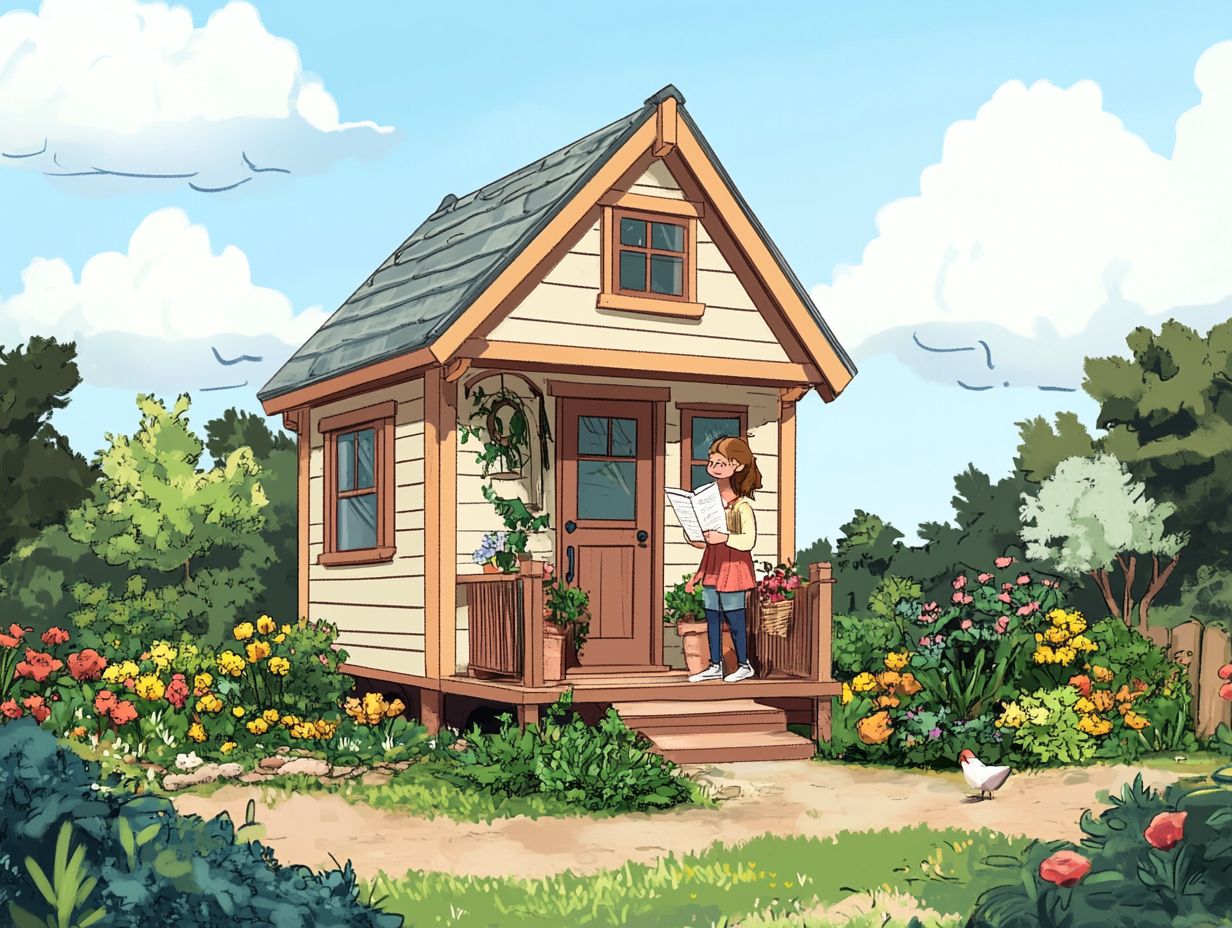
In most areas, a building permit is needed for a tiny house. Specific regulations and requirements can differ based on location. It s crucial to research and adhere to all building codes and zoning laws before constructing a tiny home.
Can I own land and have a tiny house on it?
Yes, you can own land and have a tiny house on it. However, check local zoning laws to ensure your tiny house is permitted on the property.
What are the benefits of owning a tiny house?
Owning a tiny house offers financial freedom, a simpler lifestyle, and a reduced environmental footprint. It also allows for greater flexibility and mobility, as many tiny houses are built on trailers.
What are the potential challenges of owning a tiny house?
Challenges of owning a tiny house may include difficulty finding a suitable location to park or place the house, limited living space, and adapting to a minimalist lifestyle. It s important to consider these factors carefully before committing to tiny house ownership.
Take action now! Get involved in advocating for tiny house rights and learn more about how you can support this movement.
Are there any legal restrictions on where I can park my tiny house?
Yes, there may be legal restrictions on where you can park your tiny house. Zoning laws and building codes can prevent parking on certain properties, like agricultural or commercial land.
Make sure to check local laws before parking your tiny house to avoid issues!

